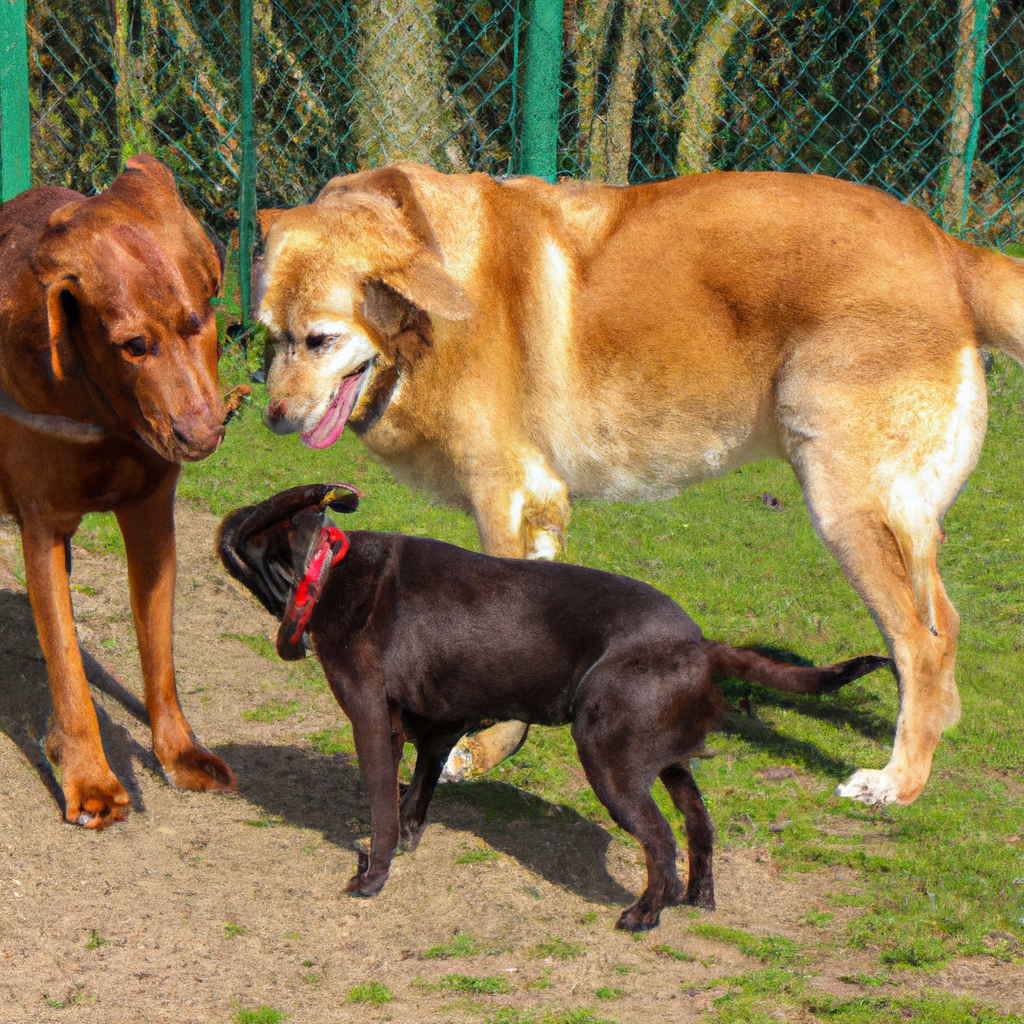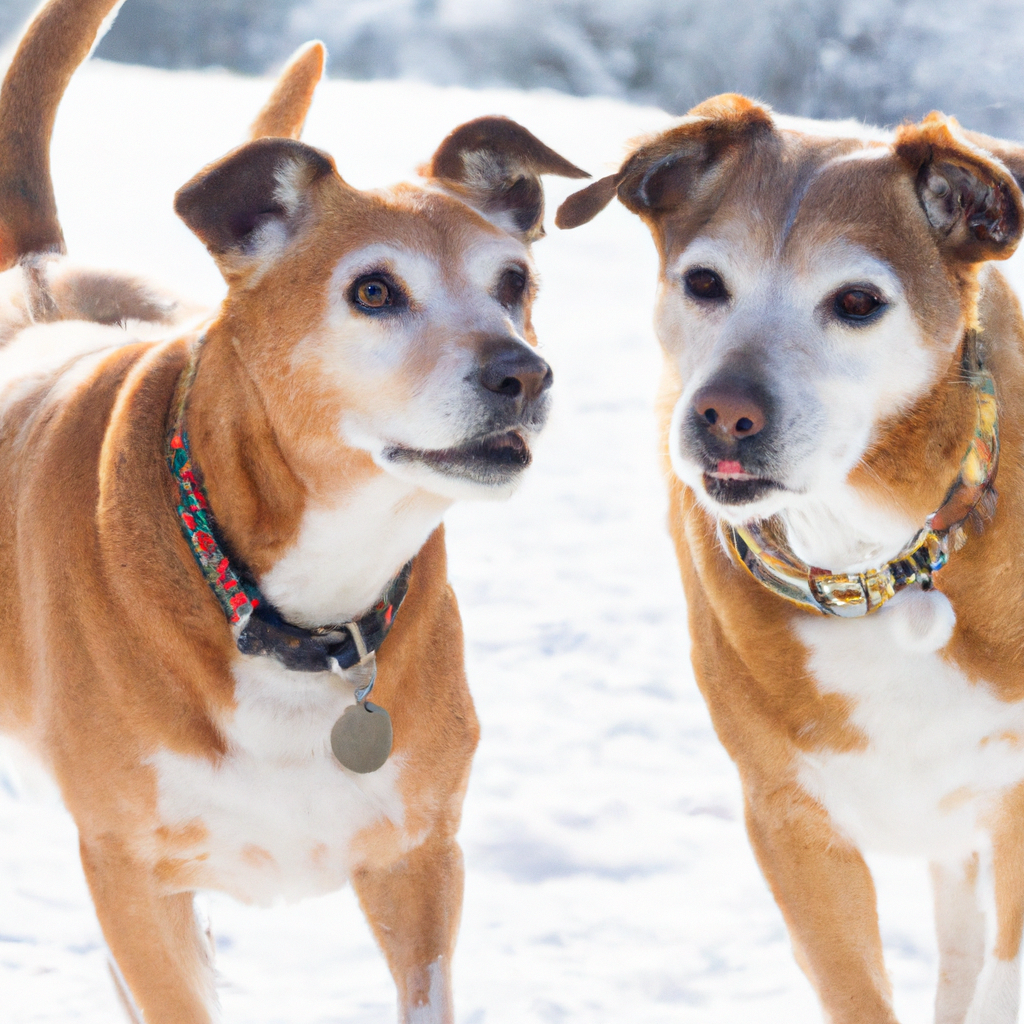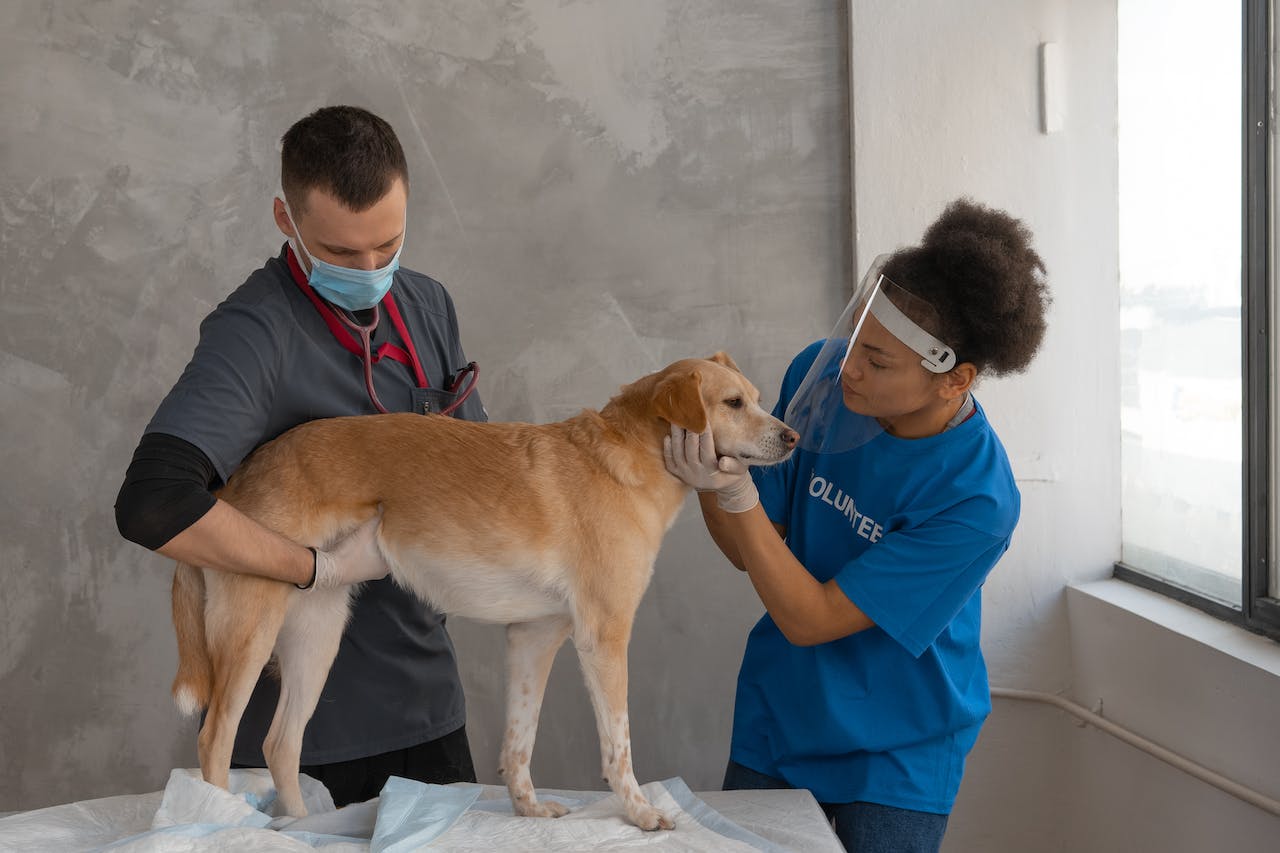The Importance of Socialization for Dogs of All Ages
As the sunbeams danced through the lush meadow, a playful pack of dogs frolicked with gleeful abandon. Socialization, the

In a world where the wagging of a tail has the power to brighten even the gloomiest of days, there is an undeniable truth: dogs are social creatures. From little paws to big snouts, our furry friends crave the companionship and interaction of others, just like we do. But why is socialization so vital for our canine companions, regardless of their age? Beyond our own human perspective, this article will delve into the depth of understanding, exploring the significance of socialization for dogs of all ages, revealing the magnificent benefits and the transformative power it holds. So, grab a leash and venture forth into the captivating world of doggy socialization!
The Key Benefits of Socialization for Dogs, from Puppies to Seniors
When it comes to our furry companions, socialization plays a crucial role in their overall well-being. From the moment they enter this world as adorable little bundles of fur to their wise and silver-muzzled senior years, dogs of all ages can benefit greatly from social interaction. Here are some of the key advantages:
- Improved Behavior: Socializing dogs from a young age helps shape their behavior and prevents the development of aggressive tendencies. By exposing them to various environments, people, and other animals, they learn to be confident, friendly, and well-mannered.
- Enhanced Mental Stimulation: Just like humans, dogs need mental stimulation to stay sharp and happy. Through socialization, they are exposed to new experiences, smells, sights, and sounds, keeping their minds active and engaged.
- Boosted Immunity: Regular socialization exposes dogs to a variety of germs and strengthens their immune system by building resistance to common illnesses. As they explore their surroundings, they develop immunity that helps them stay healthier in the long run.
Socialization isn’t just limited to the early stages of life. Even senior dogs benefit immensely from continued social interaction:
- Prevention of Cognitive Decline: Older dogs engaging in social activities maintain mental agility, thus reducing the risk of cognitive decline. Regular socialization prevents them from becoming withdrawn or lonely, keeping their minds sharp and their spirits high.
- Alleviation of Anxiety: Senior dogs often face anxiety due to changes in routine or loss of companionship. Socialization can help alleviate this anxiety as they interact with other dogs, receive attention from humans, and partake in stimulating activities that promote a sense of belonging.
- Improved Overall Happiness: Dogs are social animals, and whether they’re puppies or seniors, they thrive on companionship and love. Socialization enhances their overall happiness, reducing the risk of depression and ensuring they enjoy a fulfilling and emotionally balanced life.
Ultimately, investing time and effort into socializing our furry friends benefits them in countless ways throughout their lives. Whether they’re playfully pouncing puppies or wise old friends, social interaction helps them become well-rounded, resilient, and emotionally content companions.

Unleashing the Positive Impact: How Socialization Shapes a Dog’s Behavior and Emotional Well-being
When it comes to our loyal canine companions, socialization plays a pivotal role in shaping their behavior and emotional well-being. From an early age, exposing your furry friend to a variety of experiences, environments, and positive interactions with both humans and other animals can truly work wonders. Socialization goes beyond mere playdates at the dog park; it lays the foundation for a healthy, balanced life for your four-legged family member.
1. Builds confidence: Socializing your dog allows them to navigate new situations with ease, boosting their overall confidence. Encountering different people, sights, sounds, and smells helps them to become adaptable and resilient, reducing fear and anxiety in unfamiliar situations.
2. Enhances communication skills: Interacting with various dogs and humans from diverse backgrounds helps dogs develop effective communication skills. They learn to read body language, understand social cues, and communicate their own intentions, making them excellent communicators both within the canine world and with their human companions.
3. Prevents behavioral issues: A well-socialized dog is less likely to develop behavioral problems such as aggression, fearfulness, or separation anxiety. Early exposure to different stimuli helps dogs learn appropriate responses and coping mechanisms, making them less prone to stress-related issues later in life.

Tailored Approaches: Effective Techniques for Socializing Dogs at Different Stages of Life
When it comes to socializing dogs, there is no one-size-fits-all approach. Each stage in a dog’s life presents unique challenges and opportunities for socialization. Whether you are dealing with a puppy, adolescent, or adult dog, it is crucial to tailor your approach to their specific needs and characteristics to ensure their successful integration into social environments.
Puppyhood:
- Positive experiences: Expose your puppy to a wide variety of people, animals, and environments in a controlled and positive manner. This helps build their confidence and reduces the likelihood of fear or aggression later on.
- Puppy classes: Enroll your furry friend in puppy socialization classes where they can interact with other puppies, learn basic obedience, and develop appropriate social skills in a controlled environment.
- Playdates: Arrange playdates with well-socialized adult dogs who can provide positive role models and teach appropriate behaviors. Supervised interactions with different sizes, breeds, and ages will help your puppy become comfortable around dogs of all types.
Adolescence:
- Ongoing training: Continue reinforcing basic obedience commands and focus on impulse control. Adolescence can be a challenging stage, so consistent training will help prevent any backsliding in their socialization progress.
- Meet-and-greets: Encourage interactions with a variety of dogs and people in different environments, ensuring your adolescent dog learns to navigate unfamiliar situations with ease.
- Structured social outings: Engage in activities such as group walks, hiking, or visits to dog-friendly parks. These outings provide exposure to new social environments while promoting positive interactions with other dogs and their human companions.
Remember, every dog is an individual, and their socialization needs may vary. Adapt your approach to suit their personality, past experiences, and level of comfort. By investing time and effort into tailored socialization techniques, you are setting your canine companion up for a lifetime of happy interactions and harmonious coexistence in the world.

Socialization for Senior Dogs: Why it’s Never Too Late for Positive Experiences
As our canine companions age, it’s important to remember that socialization is a vital aspect of their overall well-being. While we often associate socialization with puppies, the truth is that it’s never too late for senior dogs to have positive experiences and form new connections. Here are a few reasons why socialization remains essential for our beloved elderly pups:
- Promotion of mental stimulation: Senior dogs can benefit greatly from new experiences and interactions as it helps keep their minds active and engaged, preventing cognitive decline.
- Boosts confidence: Introducing elderly dogs to new people, animals, and environments in a controlled and positive manner allows them to build confidence and trust in their surroundings.
- Reduces anxiety: Regular socialization can help alleviate stress and anxiety in senior dogs by exposing them to a variety of situations, teaching them that new experiences can be enjoyable and non-threatening.
Contrary to popular belief, age should never hinder a dog’s ability to engage in fear-free socialization. By providing elderly dogs with positive experiences and gentle introductions, we can help ensure their golden years are filled with joy, enrichment, and continued growth.
To Conclude
As we conclude this journey through the importance of socialization for dogs of all ages, we are reminded of the vast potential that lies within our loyal companions. From playful puppies to wise old tail-waggers, the power of socialization knows no bounds.
Just as the warmth of the sun nourishes a flower, so too does the company of fellow canines nurture the spirits of our furry friends. In their eyes, we see the reflection of a world beckoning to be explored, an invitation to build connections and bridges with their four-legged peers.
Socialization, like a grand symphony, orchestrates a harmonious existence for our dogs. It is the key that unlocks the door to trust, understanding, and cooperation. Through playful encounters, they learn the art of communication, the dance of body language, the poetry of shared experiences.
At the foundation of it all, we must remember that our dogs are not solitary beings, but rather social creatures by nature. To deny them the opportunity to interact and engage with other dogs would be akin to sheltering them from a vibrant tapestry of life.
And so, dear readers, we embark on our own mission to facilitate socialization, to weave a rich fabric of canine connections. Let us open our hearts and homes to embrace this inherent need, to unite our beloved companions with their peers.
In the end, the significance of socialization for our dogs lies not only in their happiness and well-being but also in the profound impact it has on the human-dog bond. For it is through this shared journey that our compassion deepens, our understanding widens, and our love transcends the boundaries between species.
So, as we close the chapter on this enlightening discourse, let us each take a moment to reflect on the power of socialization. Let us remember that within our hands, we carry the incredible opportunity to nurture and shape our dogs’ lives and, in doing so, invite boundless joy, growth, and fulfillment into our own.






